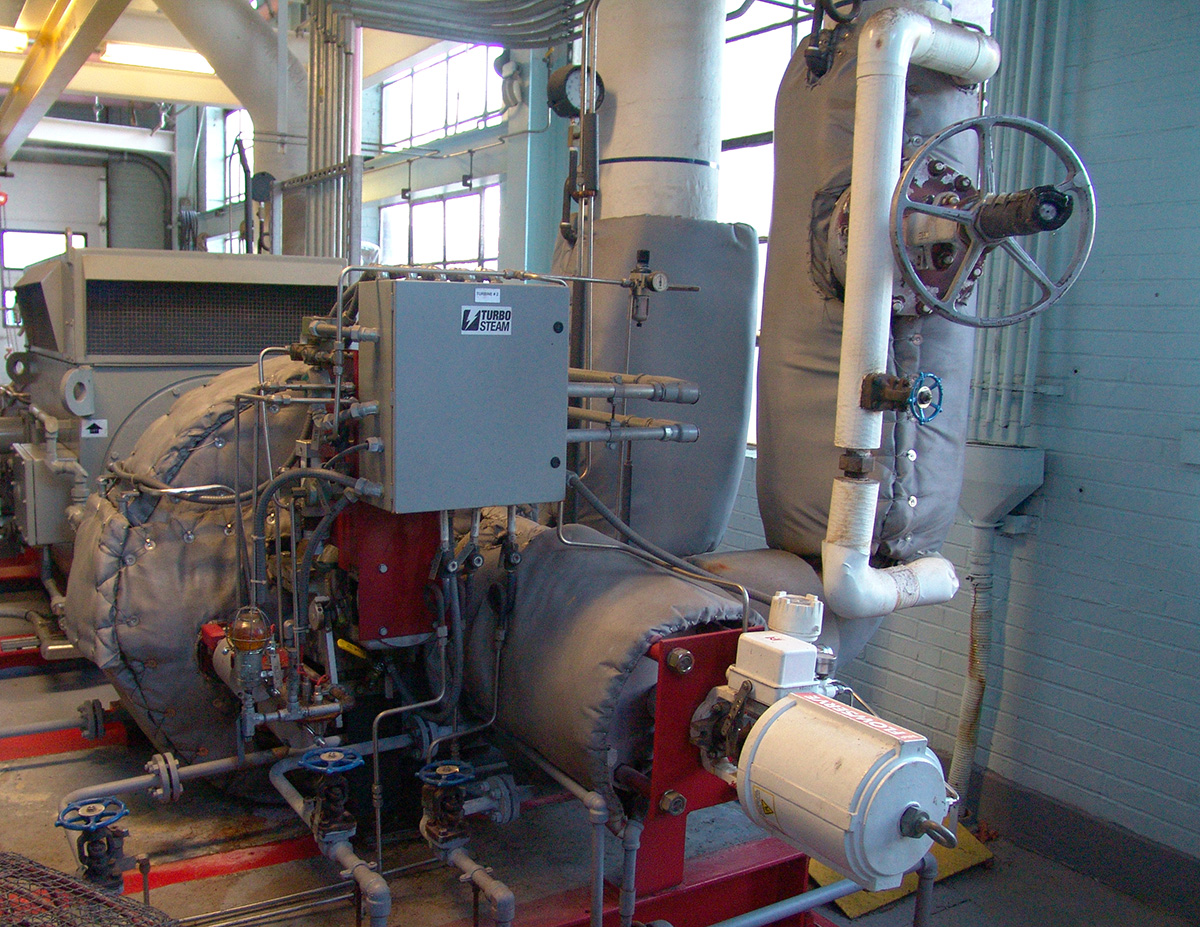
UMaine designated one of eight DOE combined heat and power centers
The U.S. Department of Energy has selected the University of Maine to lead one of eight regional partnerships dedicated to the promotion, technical support and deployment of cost-effective and highly efficient combined heat and power (CHP) technologies throughout the nation. UMaine, in partnership with the University of New Hampshire and Watson Strategy Group, will oversee the CHP Technical Assistance Partnership (TAP) center in the northeast region, including Maine, New Hampshire, Vermont, Rhode Island, Massachusetts and Connecticut.
The UMaine-led Northeast Combined Heat and Power Center (NECHPC), as well as the seven other CHP TAP program centers nationwide are supported by $25 million of DOE funding. The NECHPC will receive more than $2 million of that total.
Combined heat and power (CHP) — also known as cogeneration — is an efficient and clean approach to generating both electric power and heat from a single fuel source, like biomass or natural gas. Furthermore, heat and power can be produced onsite, reducing the need to purchase electricity from the distribution grid, greatly increasing energy security and resiliency.
“We are thrilled to be part of this important Department of Energy Program,” says David Dvorak, UMaine professor of mechanical engineering technology and principal investigator on the project. “Combined Heat and Power (CHP) systems offer real solutions to today’s energy issues — supporting economic development through improved energy efficiency, increased energy resiliency, and lower energy costs.”

The project is a natural fit within the scope of the School of Engineering Technology. Engineering technology faculty are all licensed professional engineers with advanced engineering degrees that are focused on industry application and applied research. This project will enhance opportunities for faculty and graduate students to provide direct technical assistance to industrial and commercial clients.
Other UMaine investigators involved with the project are Scott Dunning, director of the School of Engineering Technology, and Brett Ellis, assistant professor of mechanical engineering technology.
Traditional electric and thermal energy generation systems can be very inefficient. In many situations, electricity is purchased from the distribution grid, and additional fuel is used to heat a boiler or furnace to provide heat to a building or facility.
However, according to Dvorak, over half of the fuel energy consumed to generate electricity at a large power plant is exhausted as heat energy and often underutilized, even wasted.
CHP systems capture the “extra” thermal energy created in power generation and use it to provide heat in any required application — from staving off cold temperatures in apartment buildings and hospitals, to heating large amounts of water for industrial or food processing purposes.
Since the systems are self contained and generate power and heat onsite, the facilities they are installed in can operate independently of the external power grid, thus providing resilience and security in the face of extreme weather events. For example CHP-equipped hospitals, institutions and residential buildings were largely unaffected by power outages caused by Hurricane Sandy, says Dvorak.
The goal of the multi-institution NECHPC is to facilitate and accelerate the deployment of CHP technologies in the northeast by providing assistance and technical support to businesses and institutions looking to invest in CHP technology.
“We have a strong team of experts at [UMaine] and the University of New Hampshire, and look forward to working together to promote cost-effective energy systems in Maine, New Hampshire and New England,” Dvorak says.
CHP currently has an installed capacity of over 82 gigawats of energy, a total representing roughly 8 percent of the nation’s total generating capacity. In Maine, CHP accounts for 933 megawatts of the state’s generating capacity.
According to Dvorak, CHP systems are not as common as they could be, however, there is great potential for expanding the technology in the northeast, and particularly Maine. The technology has the ability to efficiently use the state’s abundant forest biomass, adding value to Maine’s well established forest industry and the region’s natural gas infrastructure is rapidly developing.
Coupled with the relative high-cost of energy in the northeast, CHP technology can provide new energy options for the region’s more rural populations and industries.
The program will offer unbiased information and education regarding potential technology solutions and installation, financing and utility contracts, as well as evaluation of project proposals and economic viability.
Dvorak says that engineering plays a critical role in growing the state’s economy, however, it’s not just through training the next generation of professional engineers. The UMaine-led group will provide critical outreach through education and technical expertise and allow greater access to CHP technology in the region.
Contact: Walter Beckwith, 207.581.3729
